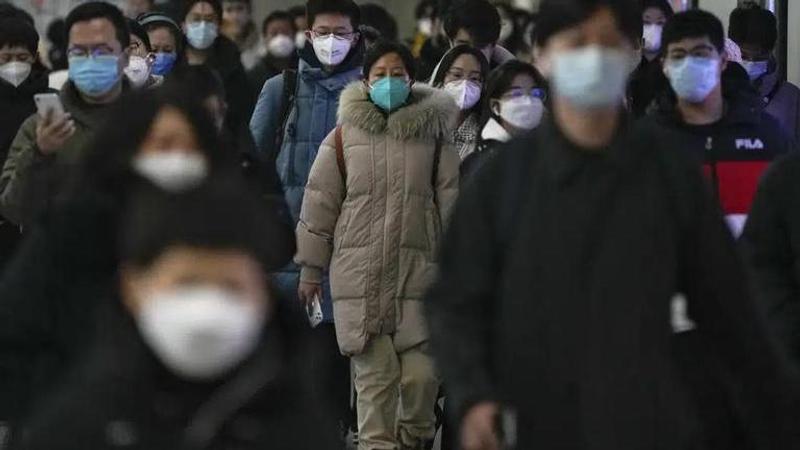Published 12:56 IST, December 20th 2022
Virus death toll in China's capital shows further rise
The death toll in the latest COVID-19 surge in China’s capital Beijing has risen incrementally, as feverish clinic patients and an increase in the funeral business point to a widening outbreak after an easing of strict virus containment regulations.

The death toll in the latest COVID-19 surge in China’s capital Beijing has risen incrementally, as feverish clinic patients and an increase in the funeral business point to a widening outbreak after an easing of strict virus containment regulations.
Unofficial reports suggest a widespread wave of new coronavirus cases, and relatives of victims and people who work in the funeral business said deaths tied to COVID-19 were increasing. Those people spoke on condition of not being identified for fear of retribution, official policy and the direction of the latest outbreak remain cloaked in uncertainty and confusion.
The National Health Commission on Tuesday said five newly recorded fatalities, all in Beijing, had taken the country’s total death toll to 5,242 — relatively low by global standards but potentially set to increase substantially following moves by the government to step away from the “zero-COVID” policy of lockdowns, quarantines and compulsory testing that has staggered the economy and prompted rare anti-government protests.
With people testing and recuperating at home, China has said it is no longer possible to keep an accurate count of new case numbers, making it substantially more difficult to gauge the state of the current wave of infection and its direction. Some scientific models have estimated numbers will rise with an eventual death toll in the tens or hundreds of thousands.
China is trying to persuade reluctant seniors and others at risk to get vaccinated, apparently with only moderate success. Vaccination centers visited over recent days have been largely empty and there has been no major publicity drive in the entirely state-controlled media.
The other major concern is shoring up health resources in smaller cities and the vast rural hinterland ahead of January’s Lunar New Year travel rush, which will see migrant workers returning to their hometowns.
Numbers of fever clinics have been expanded in both urban and rural areas and people have been asked to stay home unless seriously ill to preserve resources. Hospitals are also running short on staff, and reports say workers have been asked to return to their posts as long as they aren’t feverish.
Chinese health authorities count only those who died directly from COVID-19, excluding deaths blamed on underlying conditions such as diabetes and heart disease that raise risks of serious illness.
In many other countries, guidelines stipulate that any death where the coronavirus is a factor or contributor is counted as a COVID-19 related.
China had long hailed its restrictive “zero-COVID” approach as keeping case numbers and deaths relatively low, comparing itself favorably to the U.S., where the death toll has topped 1.1 million.
Yet the policy of lockdowns, travel restrictions, mandatory testing and quarantines placed China’s society and the national economy under enormous stress, apparently convincing the ruling Communist Party to heed outside advice and alter its strategy.
Updated 12:56 IST, December 20th 2022




